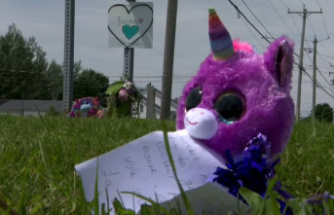For days, thousands of Iranians have been going to streets in different cities of country to demonstrate against regime. These are biggest protests since year 2009. Around 200 people were arrested, two were killed, many more injured. No one can say what will happen in next few days and weeks. Political events in Iran are as unpredictable as in hardly any or country. The recent history of this country provides a number of evidence for this.
The Revolution of year 1979 has almost no one foreseen. On contrary. When US President Jimmy Carter visited Shah in Tehran on January 1, 1978, he said: "Under great leadership of Shah, Iran has become an island of stability in an orwise troubled world!" A year later, Shah fled Iran before revolution. Hardly anyone had expected that mullahs under leadership of Ayatollah Ruhollah Khomeini would be able to hold mselves in power.
When Iraq 1980, with support of United States, began a war against Iran, he did so in belief that regime of mullahs would collapse in a few weeks. It happened exactly opposite. The regime held eight long, cruel years of war and stabilized.
Cultural opening under KhatamiIn year 1997, Iranians chose to be president of country to surprise of all Mohammad Khatami. Khatami was a reformer. Young people in particular, including many women, have elected him president. Even though Khatami did not change system, eight years of his presidency – after all, two terms of office – brought with it a social and cultural opening that hardly anyone could have trusted Islamic Republic of Iran.
According to Khatami, many observers thought re would be no return; The cultural opening he reached would sooner or later end in fall of regime. Freedom and ocracy, according to argument, are incompatible. It happened again opposite.
At Khatami, Mahmoud Ahmadinejad, a reactionary politician, followed. He remained in office for eight years. In Iran, silence of dictatorship now seemed to reign forever. But n, after election forgeries in presidential election in year 2009, tens of thousands of people went to streets. Suddenly and unexpectedly. The demonstrations of se days fit into this pattern of unpredictability.
Why West is so often wrongOf course, this unpredictability is also attributable to a lack of knowledge and expertise about Iran. Many Western observers were simply very often wrong about Iran. Ideological veneering plays a role in this. That a ocracy can assert itself in an extremely hostile environment for over 30 years was beyond Western imagination.
Neverless, unpredictability is clearly a part of Iran's political history. It is basically an indication of extraordinary vitality of this society – even 30 years of ocracy have not been able to suffocate.
People first went to streets in se days to demonstrate a high cost of living, but soon y heard "death for Chameini", supreme leader of country. First y went to street to demonstrate against mass unemployment, n likenesses burned Chameinis.
Perhaps all this is just a straw fire, perhaps regime will quickly bring situation under control. But it would not be first revolution that begins with a "maybe".
Date Of Update: 01 January 2018, 12:02









